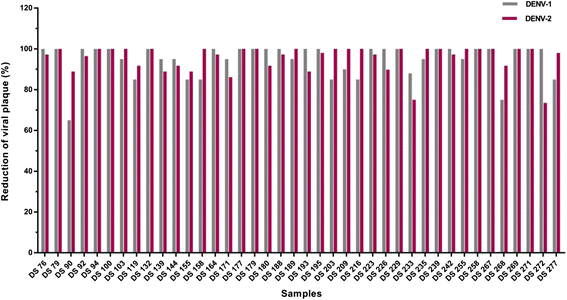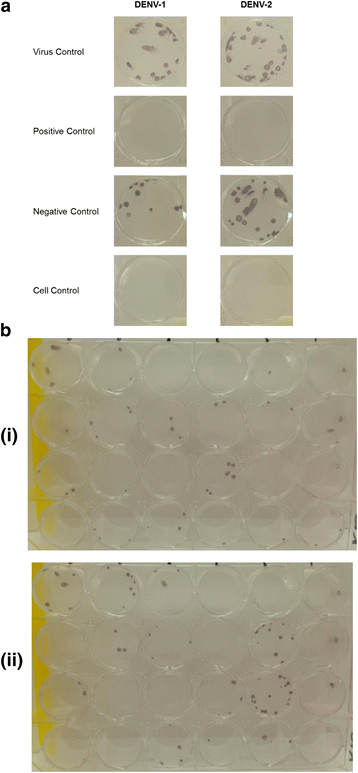Seroprevalence of dengue among healthy adults in a rural community in Southern Malaysia: a pilot study
- PMID: 29335021
- PMCID: PMC5769361
- DOI: 10.1186/s40249-017-0384-1
Seroprevalence of dengue among healthy adults in a rural community in Southern Malaysia: a pilot study
Abstract
Background: The frequency and magnitude of dengue epidemics continue to increase exponentially in Malaysia, with a shift in the age range predominance toward adults and an expansion to rural areas. Despite this, information pertaining to the extent of transmission of dengue virus (DENV) in the rural community is lacking. This community-based pilot study was conducted to establish DENV seroprevalence amongst healthy adults in a rural district in Southern Malaysia, and to identify influencing factors.
Methods: In this study undertaken between April and May 2015, a total of 277 adult participants were recruited from households across three localities in the Sungai Segamat subdistrict in Segamat district. Sera were tested for immunoglobulin G (IgG) (Panbio® Dengue Indirect IgG ELISA/high-titer capture) and immunoglobulin M (IgM) (Panbio®) antibodies. The plaque reduction neutralization test (PRNT) was conducted on random samples of IgG-positive sera for further confirmation. Medical history and a recall of previous history of dengue were collected through interviews, whereas sociodemographic information was obtained from an existing database.
Results: The overall seroprevalence for DENV infection was 86.6% (240/277) (95% CI: 83-91%). Serological evidence of recent infection (IgM/high-titer capture IgG) was noted in 11.2% (31/277) of participants, whereas there was evidence of past infection in 75.5% (209/277) of participants (indirect IgG minus recent infections). The PRNT assay showed that the detected antibodies were indeed specific to DENV. The multivariate analysis showed that the older age group was significantly associated with past DENV infections. Seropositivity increased with age; 48.5% in the age group of <25 years to more than 85% in age group of >45 years (P < 0.001). No associations with occupation, study site, housing type, comorbidity, educational level, and marital status were observed, although the latter two were statistically significant in the univariate analysis. None of the studied factors were significantly associated with recent DENV infections in the multivariate analysis, although there was a pattern suggestive of recent outbreak in two study sites populated predominately by Chinese people. The majority of infections did not give rise to recognizable disease (either asymptomatic or nonspecific symptoms) as only 12.9% of participants (31/240) recalled having dengue in the past.
Conclusions: The predominantly rural community under study had a very high previous exposure to dengue. The finding of a high proportion of unreported cases possibly due to subclinical infections underscores the need for enhanced surveillance and control methods. This finding also has implications for measuring disease burden, understanding transmission dynamics, and hypothesizing effects on DENV vaccine efficacy and uptake.
Keywords: Community-based study; Dengue; Dengue virus; Malaysia; Rural; Seroprevalence; Subclinical infection.
Conflict of interest statement
Ethics approval and consent to participate
Ethical approval for the study was obtained from the Medical Research Ethics Committee, Ministry of Health Malaysia (NMRR-14-42-19126), and the Monash University Human Research Ethics Committee (CF14/2543–2014001379).
Consent for publication
Not applicable.
Competing interests
The authors declare that they have no competing interests.
Figures


References
-
- World Health Organization . Dengue. Dengue guidelines for diagnosis, treatment, prevention and control. Geneva: World Health Organization; 2009. - PubMed
-
- Mudin RN. Dengue incidence and the prevention and control program in Malaysia. Int. Med J Malaysia. 2015;14(1):05–10.
MeSH terms
Substances
Grants and funding
LinkOut - more resources
Full Text Sources
Other Literature Sources
Medical
Research Materials
Miscellaneous

